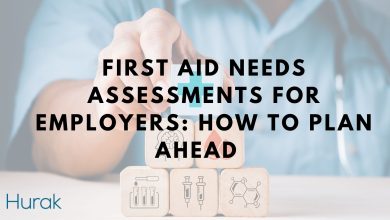Everything to Know About UK College Admission

Are you planning to apply to a university in the UK but don’t know where to start? Do you want to learn everything you can about UK university acceptance, UCAS deadlines, and UK university application requirements for undergraduate and postgraduate degrees? Then you’ve come to the right place!
The United Kingdom is home to some of the top universities in the world, tucked in lovely historic villages and busy lively cities. The country attracts approximately 500,000 international students each year and is recognised as one of the top three countries in the world for international students. But getting admission into the universities in the UK can be a daunting task. But you don’t have to worry! We have prepared an easy-to-use and comprehensive guide with crucial information to assist you in completing the application process for your dream university in the UK.
1. Select a university and a programme of study
The first step is to establish your goal: what you want to study and where you want to study. There are over 395 institutions and colleges to choose from, offering a diverse range of degrees such as literature, arts, engineering, business studies, nursing, biomedical sciences, and many more.
You can apply to up to five universities, so spend some time investigating which universities offer your subject and exploring their websites.
2. Ensure you meet all the requirements
The entry criteria for higher education courses at UK universities and colleges vary according to the course, university, degree level, and subject. Some of the general eligibility criteria for studying in the United Kingdom are as follows:
- Qualifications, subjects, and exam grades will be converted into UCAS tariff points based on the candidate’s advanced higher or equivalent-level qualifications.
- Suitability- The university would also examine your suitability for the applied course, taking your abilities, experience, and interests into account.
- Admissions exam(s)- In the United Kingdom, universities and colleges frequently require candidates to pass an admissions test for the course and degree level of interest.
- English proficiency test- Prospective applicants should demonstrate their English language skills by performing well on English languages proficiency exams such as the TOEFL, IELTS, or PTE Academic.
- Interview- Following the submission of all documentation and test scores, the institution may hold an interview, which you should attend. Similarly, you may be expected to present your portfolio and be well-prepared.
- More requirements- Your university may want additional information about your health, income, criminal background (if any), and other matters.
3. Get the necessary documents ready
When applying to UK universities, you will be required to provide some key documents, including:
- Statement of purpose
- Recommendation letters
Your statement of purpose is extremely important since it serves as the basis for the institution determining your suitability for the programme. You must compose more than one personal statement if you are applying to different programmes. Your statement should be both coherent and succinct, as well as comprehensive. Maintain the required word count. The UCAS application has a character limit of 4,000. Ask your teachers or employers for two to three letters of recommendation. Have your passport, ID card, or driver’s licence ready.
4. Apply through UCAS
The UCAS website is simple to use and will walk you through the application process. Fill out your personal information, the UCAS codes you gathered earlier for your course and universities, and your personal statement.
5. Wait for the Admission Letter
The institution provides an offer of study following a successful evaluation of your documentation. You’d have to accept the offer. If you meet all of the requirements and pay the cost for the first year, you will receive a CAS (Certificate of Acceptance of Studies).
6. Arrange your finances
This sum is estimated by taking numerous things into accounts, such as the location of the university you wish to attend and the length of your degree. For example, if you attend a university in London, you must have at least £1,200 each month. In total, you must have at least £1,000 per month to cover living expenses in the UK.
7. Take care of your health insurance
You can use the European Health Insurance Card if you are from an EU/EEA country (EHIC). If you do not have valid health insurance, you will have to pay 80–160 EUR per month to cover it.
8. Get your student visa
If you are studying for a full degree in the UK, you will require a Tier 4 (General) Student Visa, or a Student Visitor Visa if you are studying for six months or less, which you may obtain through an online application. As part of your application, you must have your fingerprints and photograph taken at a visa application centre (to obtain a Biometric Residence Permit).
A Tier 4 visa costs £310 (US$435), while a six-month Student Visitor visa costs £83 (US$116).
Following these steps will make the admissions process easier and less stressful for you. Are you ready to live your dream? Get in touch with UK Study Abroad Consultants today and get started on your dream journey to a country famous for its rich history, picturesque views and great people!




